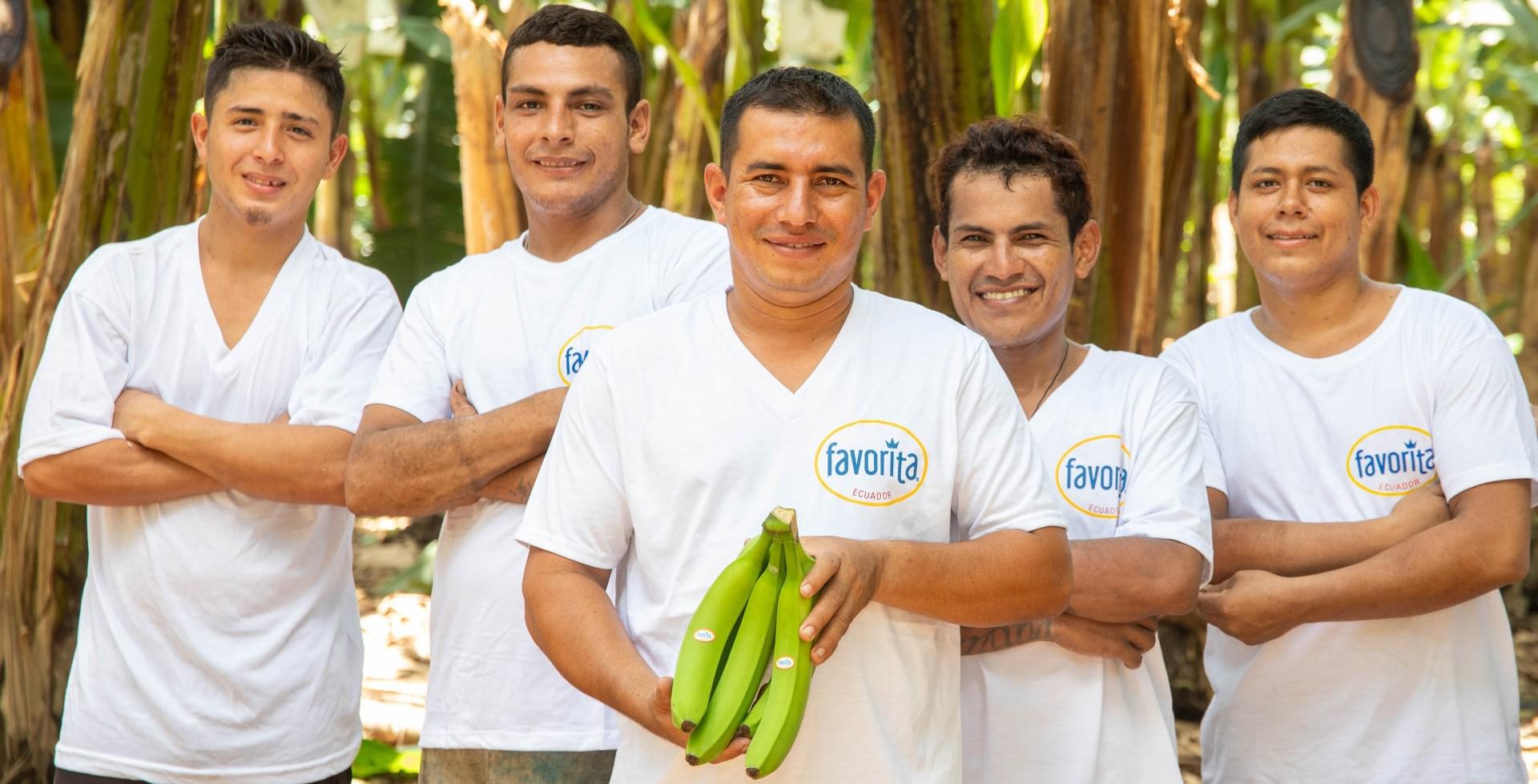Sustainability through innovation: how we protect our plantations at Reybanpac
2025-06-25At Reybanpac, we are aware that biosecurity is vital to guarantee the production of high-quality bananas and the sustainability of our business, on which thousands of Ecuadorian families depend.
Therefore, as part of our good environmental practices, we have an integrated management plan focused on preventing the incidence of pests and diseases in our plantations through the application of physical, biological, mechanical, cultural, and chemical methods.
At the same time, Reybanpac is constantly headhunting new technologies aligned with our sustainable development strategy. For example, in 2024 we invested in a UV system to disinfect water from surface hydric sources, one of the potential channels for the spread of bacteria and fungi that cause diseases such as moko and Fusarium TR4. This project, which started with a pilot plan on six farms, is 99.9% effective. By the end of 2025, we plan to cover 20 of our 43 farms with this innovation.
In addition, we monitor pests to detect areas with organisms above the thresholds. Based on these results, we define the most appropriate pest control program. In cases where we decide to use pesticides, we choose certified products that comply with standards for use and rotation of molecules for effective control.
Since 2021, we have also been using microorganisms in our plantations that are generated and distributed from our biofactory. This eco-friendly program has in turn contributed to the control of pests and diseases in plants and roots, allowing us to reduce the application of nematicides in crops to zero in 2025.
OTHER PRACTICES FOR RESPONSIBLE PLANT HEALTH CONTROL:
- We have protection zones around ecosystems, water sources, and villages.
- We use drones and Martignani equipment for fumigation in sensitive areas.
- To reduce pesticide use, we use biological products and less agricultural oil. In addition, we segment farms according to their level of infection risk to establish specific programs and optimize the use of fungicides.
- Our employees receive annual training on phytosanitary control procedures for their safety, and we constantly develop internal communication campaigns to strengthen the culture of biosafety on our farms.
